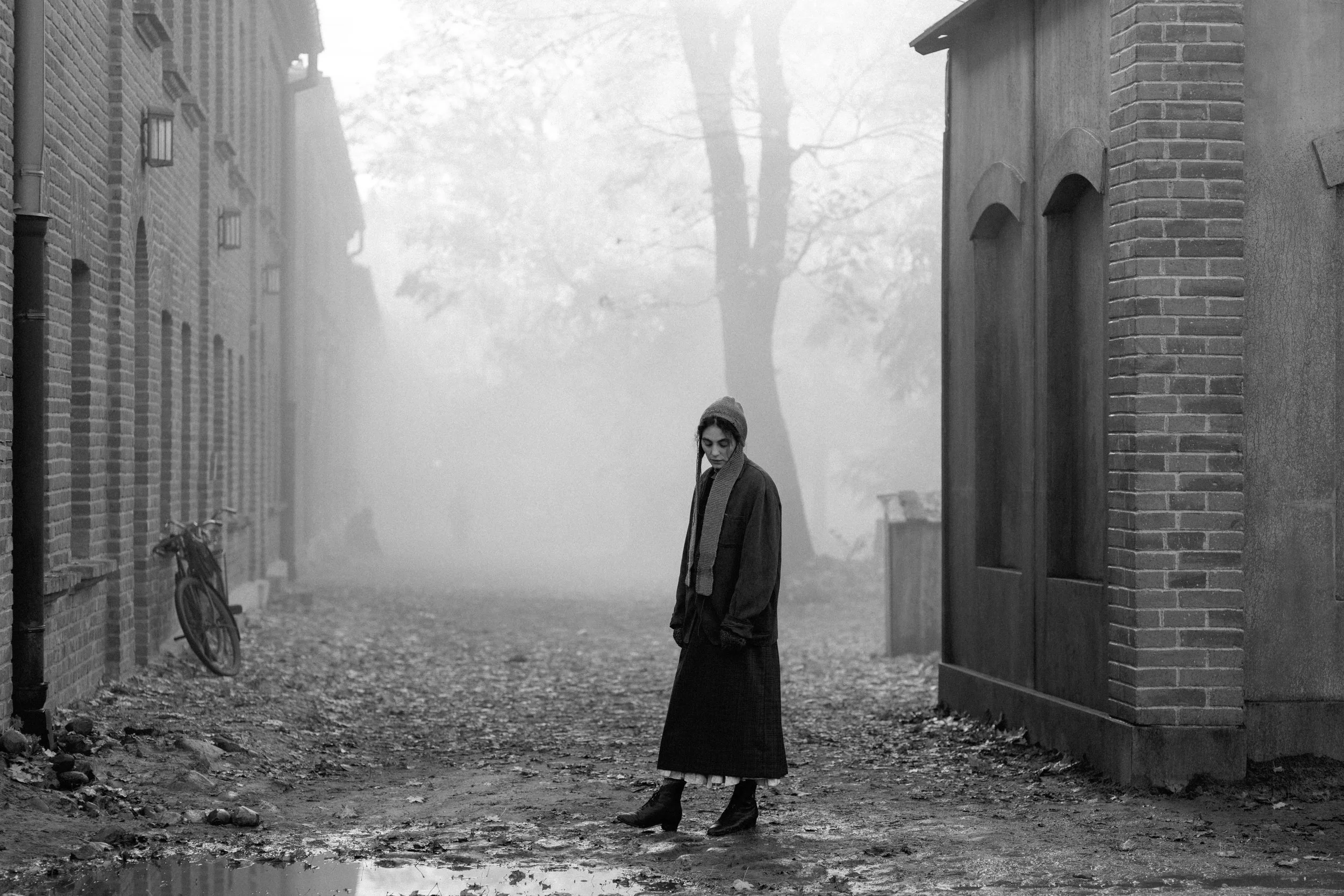The Girl With The Needle: Post-WWI Drama Lays Bare The Precarious Lives of Women
By Liz Braun
Rating: A+
The Girl with The Needle is a harrowing drama based on real-life crimes that took place in Copenhagen around 1920. Directed by Magnus von Horn, the film is beautiful to look at but difficult to watch — this is dark, gripping, Bergman-esque fare.
The action centres around Karoline (Vic Carmen Sonne), an impoverished seamstress working in a linen factory. Her husband is missing and presumed dead in the war, and as the story begins she is being evicted from her grubby lodgings.
Poverty puts a dusting of despair on everything in the landscape — her room, the factory, the filthy city around them. Karoline’s situation is dire, but as a widow, she can appeal for financial help at her place of work.
She goes to the factory director (Joachim Fjelstrup) to plead her case, and he is quite taken with his young employee. They begin an affair. Karoline is briefly happy, but all that is shattered when her husband returns from the war, wounded and horribly disfigured. The affair with her boss is ended by his formidable mother, and Karoline is on her own again, now abandoned, unemployed, and pregnant.
She is attempting to terminate that pregnancy when she meets Dagmar (Trine Dyrholm), a kind woman who offers to take her in and give her work. Dagmar has a shop, but behind the scenes she runs an illegal adoption agency, where unwanted babies like Karoline’s are placed in good families. Dagmar and her little daughter welcome Karoline into their home, and it seems Karoline is finally safe at last.
Nothing could be further from the truth.
Events slowly and quietly become horrific in The Girl with The Needle, but it’s not as if a viewer is unprepared — every element of the film works in Machiavellian harmony to create an atmosphere saturated in dread. Shot in extra-bleak black and white and set to Frederikke Hoffmeier’s anxiety-provoking score, the film tells a devastating tale — that is nonetheless mesmerizing to experience.
The real events that are the basis for The Girl with The Needle took place 100 years ago, but what director von Horn and co-writer Line Langebek Knudsen are presenting here is an entirely contemporary look at the precarious lives of women. (And how Gilead-reminiscent are the modest gowns and head-coverings for women of the era?)
Given the current backsliding on reproductive rights, a story about what happens to women and children when the only options are shame, suffering, and poverty seems timely.
At one point in the story, Dagmar reminds Karoline that the world is a horrible place, “but we need to believe it is not so.” After November 5, it's getting tougher to believe.
<iframe width="560" height="315" src="https://www.youtube.com/embed/Mo8VcGW7qvs?si=vy9vyMYhQHLTT5RG" title="YouTube video player" frameborder="0" allow="accelerometer; autoplay; clipboard-write; encrypted-media; gyroscope; picture-in-picture; web-share" referrerpolicy="strict-origin-when-cross-origin" allowfullscreen></iframe>
The Girl with The Needle is Denmark’s Oscar submission for Best International Feature. The movie was first shown here at TIFF, in September.
The Girl with The Needle. Directed by Magnus von Horn, written by Magnus von Horn and Line Langebek Knudsen. Starring Vic Carmen Sonne, Trine Dyrholm, Besir Zeciri, Joachim Fjelstrup. In theatres December 6.



